Conflict Zones
‘Alarming regression’ in path to peace in South Sudan, UN commission warns | United Nations News

South Sudan has seen an “alarming regression” as clashes in recent weeks in the country’s northeast threaten to undo years of progress towards peace, the United Nations commission on human rights for the country has warned.
The statement on Saturday from Yasmin Sooka, chairperson of the UN Commission on Human Rights in South Sudan, comes amid a spate of violence between security forces overseen by President Salva Kiir and an armed group his government has alleged is linked to First Vice President Riek Machar.
The situation has put in peril the pair’s fragile power-sharing agreement reached in 2018 to end five years of civil war. It has also sparked fears of war in the country’s Upper Nile state.
“We are witnessing an alarming regression that could erase years of hard-won progress,” Sooka said.
“Rather than fuelling division and conflict, leaders must urgently refocus on the peace process, uphold the human rights of South Sudanese citizens, and ensure a smooth transition to democracy,” Sooka said.
The chairperson of the African Union Commission, Moussa Faki Mahamat, also expressed “deep concern” on Saturday.
In a statement, he called for an “immediate end to all hostilities.”
Eruption of violence
The latest flare-up began when fighting erupted between the Sudanese armed forces and a group identified by Human Rights Watch (HRW) as an “armed youth militia” in Nasir County in the Upper Nile state in February.
While it remains unclear what started the fighting, HRW noted rumours of forced disarmament may have fueled the unrest. Several clashes have since taken place, with fighters using “heavy weaponry”, according to the United Nations Mission in South Sudan (UNMISS). The agency has also reported fighting in Western Equatoria state in the southwestern part of the country.
Earlier this week, South Sudan’s information minister, Michael Makuei Lueth, blamed the violence, in part, on the White Army, a Nuer armed group operating in Upper Nile. He accused the group of working in league with Machar’s party, the Sudan People’s Liberation Movement in Opposition (SPLM/IO).

Tensions rose further earlier this week when Kiir ordered the arrests of two officials and several senior military officials allied with Machar. The army also surrounded Machar’s home, effectively putting him under house arrest.
Then on Friday, a UN helicopter attempting to rescue soldiers in the state was attacked, killing one crew member and wounding two others. An army general was also killed in the failed rescue mission, the UN Mission in South Sudan (UNMISS) said Friday.
Speaking late Friday, Kiir urged calm following the incident.
“The government I lead will handle this crisis. We will remain steadfast on the path of peace,” he said.
‘Reckless power struggles’
South Sudan is the world’s youngest country, having gained independence in 2011.
However, the independence movement, led by Kiir’s Sudan People’s Liberation Movement (SPLM), quickly splintered. By 2013, the country had descended into full-scale civil war. The fighting killed more than 400,000 people and displaced more than a million others.
In 2018, the two sides signed the Revitalised Agreement on Resolution of the Conflict in South Sudan (R-ARCSS).
The agreement was meant to see the two warring factions unite their armies under a single unit, write a new constitution, prepare for general elections, organise a census and disarm all other armed groups. However, none of the reforms have been instituted.
In the statement released on Saturday, Barney Afako, another member of the UN Commission on Human Rights in South Sudan, warned observers are witnessing “a return to the reckless power struggles that have devastated the country in the past”.
He said that the South Sudanese had endured “atrocities, rights violations which amount to serious crimes, economic mismanagement, and ever-worsening security”.
“They deserve respite and peace, not another cycle of war,” he said.
Conflict Zones
Sudan Paramilitary Claims Key Gains in Kordofan; Fighting Intensifies Near Khartoum

Khartoum, May 30, 2025 — Rapid Support Forces (RSF) deputy leader Abdel Rahim Daglo announced on Friday that RSF fighters would press their eastward advance toward Khartoum, claiming “great victories” in several strategic towns across Kordofan. Addressing troops at an undisclosed location, Daglo said that all armed groups within the Tasis coalition had joined his paramilitary ranks and were now operating in concert with the RSF.
According to Daglo, RSF units seized control of Al-Dubaibat and Al-Hammadi in South Kordofan state, as well as Al-Khawi in neighboring West Kordofan. “Our fighters have secured these areas after intense clashes with Sudanese Armed Forces (SAF) units and allied militias,” Daglo declared, adding that the momentum would not wane until the capital was within reach.
Sudan’s army, however, downplayed recent RSF advances as part of a “reorganization” campaign. A senior ally of the SAF—also the governor of Darfur—insisted that the military was regrouping and fortified its positions to counter what he described as “a temporary setback.” He maintained that the SAF’s strategic reserves remained intact and that front-line forces were being repositioned to mount a sustained defense of Khartoum.
As fighting has spread northward, the humanitarian situation in Khartoum has deteriorated sharply. With basic services all but collapsed, a deadly cholera outbreak has emerged in the densely populated capital. Aid agencies warn that the impending rainy season could exacerbate sanitation challenges, fueling further disease transmission. The United Nations has labeled the crisis “the world’s worst humanitarian emergency,” citing over 25,000 confirmed deaths and more than 3 million internally displaced persons since April.
International pressure has also mounted on Sudan’s transitional government. In late May, Washington imposed sanctions on Sudanese military leaders for the “alleged use of chemical weapons” against civilians. In response, the government announced a national investigation into the claims—a move it said was aimed at preserving Sudan’s international standing amid intensifying conflict.
With both sides entrenching their positions around Khartoum, observers warn that a protracted stalemate could unleash further civilian suffering. The RSF’s pledge to advance eastward has raised concerns that front-line engagements may spill into densely populated suburbs, where millions have already endured weeks of intermittent shelling and aerial bombardments. For now, the fate of Khartoum—and the broader prospects for peace—remain uncertain as paramilitary and army forces brace for a decisive showdown.
Conflict Zones
Two killed in Russian attacks on Ukraine before possible talks in Turkiye | Russia-Ukraine war News
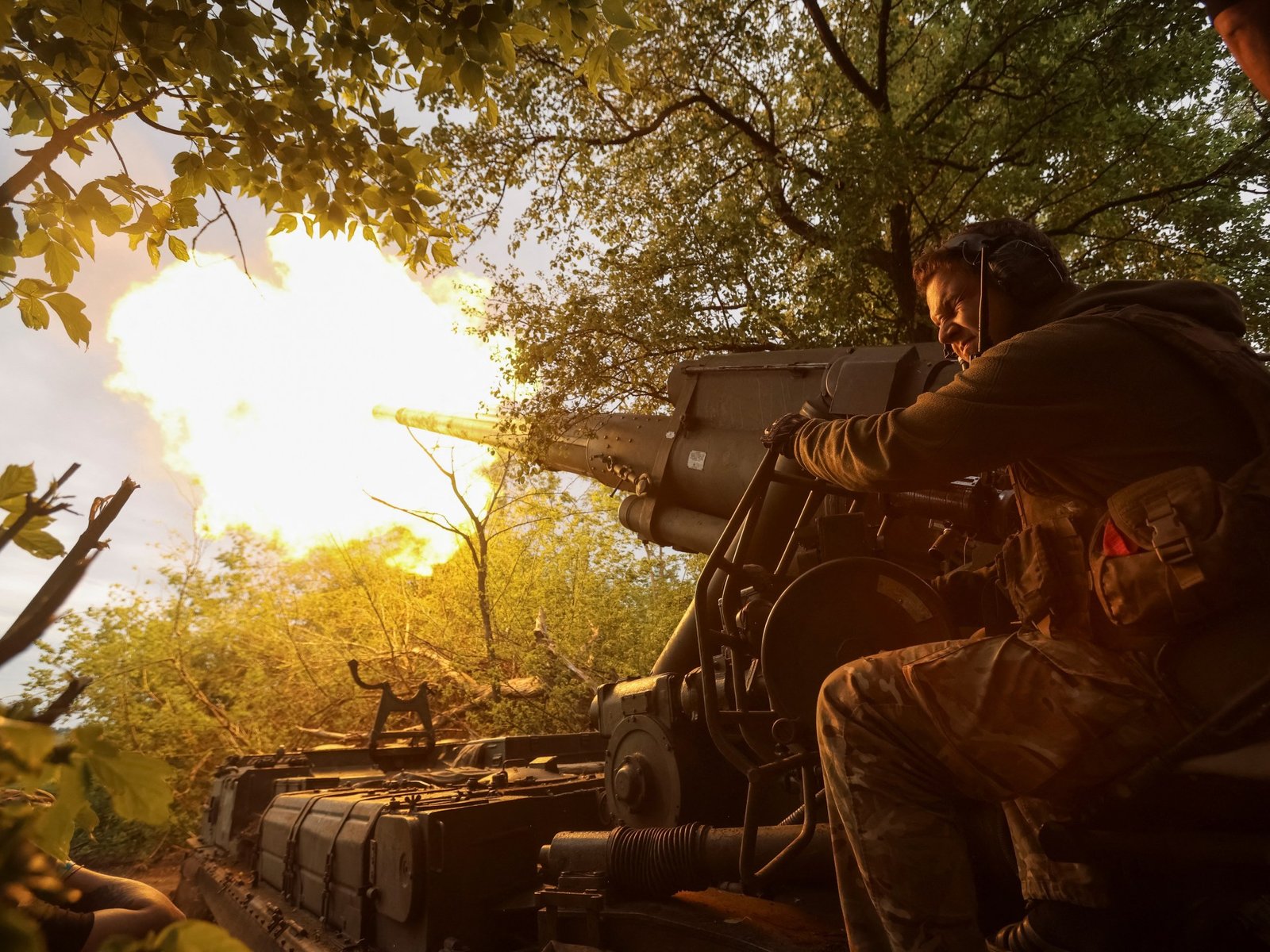
Russia has confirmed it will send a delegation to Istanbul, but Kyiv has not yet accepted the proposal.
Russian drone and missile attacks on Ukraine have killed at least two people, according to officials, as Ukraine ordered the evacuation of 11 more villages in its Sumy region bordering Russia.
Russian troops launched an estimated 109 drones and five missiles across Ukraine on Friday and overnight, the Ukrainian air force said on Saturday, adding that three of the missiles and 42 drones were destroyed and another 30 drones failed to reach their targets without causing damage.
The attacks came amid uncertainty over whether Kyiv will take part in a new round of peace talks early next week in Istanbul.
In the Russian attacks on Saturday, a child was killed in a strike on the front-line village of Dolynka in the Zaporizhia region, and another was injured, Zaporizhia’s Governor Ivan Fedorov said.
“One house was destroyed. The shockwave from the blast also damaged several other houses, cars, and outbuildings,” Fedorov wrote on Telegram.
A man was also killed by Russian shelling in Ukraine’s Kherson region, Governor Oleksandr Prokudin wrote on Telegram.
Moscow did not comment on either attack.
Meanwhile, authorities in Ukraine’s Sumy region said they were evacuating 11 villages within a roughly 30-kilometre (19-mile) range from the Russian border.
“The decision was made in view of the constant threat to civilian life as a result of shelling of border communities,” the regional administration said on social media.
Ukrainian President Volodymyr Zelenskyy has said some 50,000 Russian troops have amassed in the area with the intention of launching an offensive to carve out a buffer zone inside Ukrainian territory.
Ukraine’s top army chief, Oleksandr Syrskii, said on Saturday that Russian forces were focusing their main offensive efforts on Pokrovsk, Torets and Lyman in the Donetsk region, as well as the Sumy border area.
Syrskii added that Ukrainian forces are still holding territory in Russia’s Kursk region – a statement Moscow has repeatedly denied.
The evacuations and attacks came just two days before a possible meeting between Kyiv and Moscow in Istanbul, as Washington called on both countries to end the three-year war.
Russia has confirmed it will send a delegation, but Kyiv has not yet accepted the proposal, warning the talks would not yield results unless the Kremlin provided its peace terms in advance.
Zelenskyy said Saturday it was still not clear what Moscow was planning to achieve at the meeting and that so far, it did not “look very serious”.
Conflict Zones
Hegseth warns of China threat as Beijing’s top brass skip Singapore summit | Military News
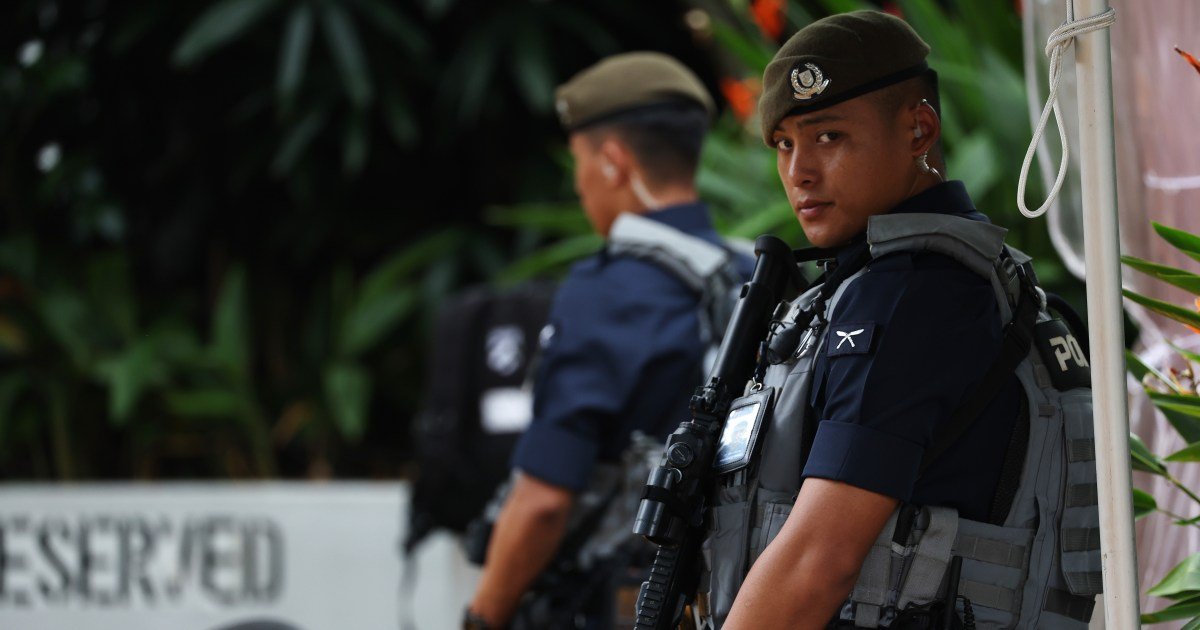
Singapore – Of the many military officials darting across the lobby of Singapore’s Shangri-La Hotel this weekend, there has been one significant absence.
China’s Defence Minister Dong Jun skipped the annual Shangri-La Dialogue, Asia’s premier security forum, with Beijing sending a delegation of lower-ranking representatives instead.
It was the first time since 2019 that China has not dispatched its defence minister to the high-level dialogue on regional defence, except when the event was cancelled in 2020 and 2021 due to the COVID-19 pandemic.
Beijing’s decision raised eyebrows in Singapore, coming at a time of heightened tensions between China and the United States – the world’s two biggest superpowers.
Dong’s absence meant there was no face-to-face meeting with his US counterpart, Secretary of Defence Pete Hegseth, who had the floor to himself on Saturday when he told the defence forum that the military threat posed by China was potentially imminent.
“It has to be clear to all that Beijing is credibly preparing to potentially use military force to alter the balance of power in the Indo-Pacific,” Hegseth told delegates in Singapore.
Pointing to China’s regular military drills around Taiwan as well as increasingly frequent skirmishes in the South China Sea, Hegseth said Beijing was proactively harassing its neighbours.
“There’s no reason to sugar-coat it. The threat China poses is real, and it could be imminent,” Hegseth said.
He also pointed to China’s growing military assertiveness as a reason for Asian nations to boost their defence spending, pointing to Germany, which has pledged to move towards spending 5 percent of its gross domestic product (GDP) on defence.
“It doesn’t make sense for countries in Europe to do that while key allies in Asia spend less on defence in the face of an even more formidable threat,” Hegseth said.
The defence chief also looked to reassure Asian allies that Washington was committed to Asia Pacific security despite strained ties in recent months as US President Donald Trump targeted some close allies with hefty trade tariffs.
“America is proud to be back in the Indo-Pacific, and we’re here to stay,” he said, opening his speech.
Some analysts were quick to play down the severity of Hegseth’s warnings about China.
“Short of a very few countries, not many in this part of the world see China as an imminent threat and would up their [defence] spending,” said Dylan Loh, assistant professor in the public policy and global affairs programme at Singapore’s Nanyang Technological University.
China tight-lipped on defence chief’s absence
In previous years, the Shangri-La Dialogue had provided a rare platform for meetings between Chinese and US officials in the more informal surroundings that the summit could offer.
The structure of the schedule also allowed Beijing’s military chiefs to directly respond to the keynote speech from the US defence secretary and to present their narrative to other members of the Asia Pacific.
Beijing has remained tight-lipped on the reason for Defence Minister Dong’s absence from the forum, fuelling an information void that has been filled by speculation.
One theory is that China did not want to send a high-profile delegate to the event at such a sensitive time as Beijing navigates the tariff war with the Trump administration.
“Any sort of faux pas or comments that may go off script can be picked up and picked apart or misconstrued,” said Loh, of Singapore’s Nanyang Technological University.
“So the question is why take the risk when US-China relations are at a very delicate point at this moment,” Loh told Al Jazeera.

The Shangri-La Dialogue weekend has not always been the easiest occasion for Chinese defence ministers. In recent years, they have faced difficult questions from their counterparts in other countries, who are unhappy with Beijing’s increasing assertiveness in the Asia Pacific region.
Loh said this could be another factor in Dong’s absence from the high-profile event.
“Any Chinese defence minister coming to Singapore now will be exposing himself and the country to political risk,” he said. “Themes like the South China Sea and possibly Taiwan will emerge, which makes China a convenient target,” Loh added.
Dong was appointed as China’s defence minister in late 2023, after his predecessor, Li Shangfu, was removed from office.
Less than a year into the job, there was speculation surrounding Dong’s new position following media reports that he was under investigation as part of a wider investigation into corruption in the Chinese military. Beijing denied the reports, with the minister continuing to maintain a public profile despite the allegations.
There has also been intense scrutiny of China’s military, following reports of an apparent purge of top-level officials by President Xi Jinping.
One of Beijing’s most senior generals, He Weidong, was missing from a high-profile political meeting in April, adding to rumours surrounding a possible restructuring in the People’s Liberation Army (PLA).
Ian Chong, a nonresident scholar at the Carnegie China research centre, said such speculation could be a factor in Dong’s no-show in Singapore.
“Because of the domestic turmoil with China’s senior military, they perhaps don’t want to, or the PLA itself feels that it’s not in a position to send somebody senior,” Chong told Al Jazeera.
Announcing Dong’s absence at a news conference before the summit, Chinese military spokesperson Senior Colonel Zhang Xiaogang maintained that communication channels were still open between defence officials in Washington and Beijing.
“China places great importance on US-China military ties, and is open to communication at different levels,” Zhang said.
-

 Africa4 days ago
Africa4 days agoSurvivor of Liverpool car ramming talks of shock and panic
-

 Sports3 days ago
Sports3 days agoThe Knicks are bringing hope and title dreams back to New York after years in the doldrums
-

 Lifestyle3 days ago
Lifestyle3 days agoFaizan Zaki hopes to go from spelling bee runner-up to champ
-

 Lifestyle3 days ago
Lifestyle3 days agoChildren and careers: Talking to kids about what they want to be when they grow up
-

 Lifestyle4 days ago
Lifestyle4 days agoHow to decorate a patio, balcony or other small outdoor space
-
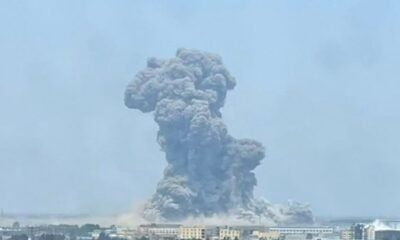
 Asia5 days ago
Asia5 days agoHuge blast rocks Chinese chemical plant, authorities launch rescue operation
-
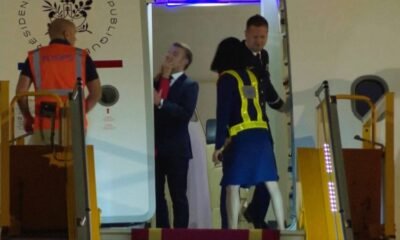
 Europe5 days ago
Europe5 days agoMacron’s marital shove disappears from French airwaves
-
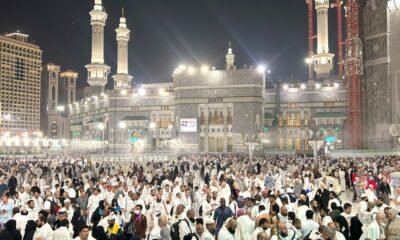
 Middle East4 days ago
Middle East4 days agoHajj pilgrimage in Saudi Arabia to begin on June 4 | Religion News




